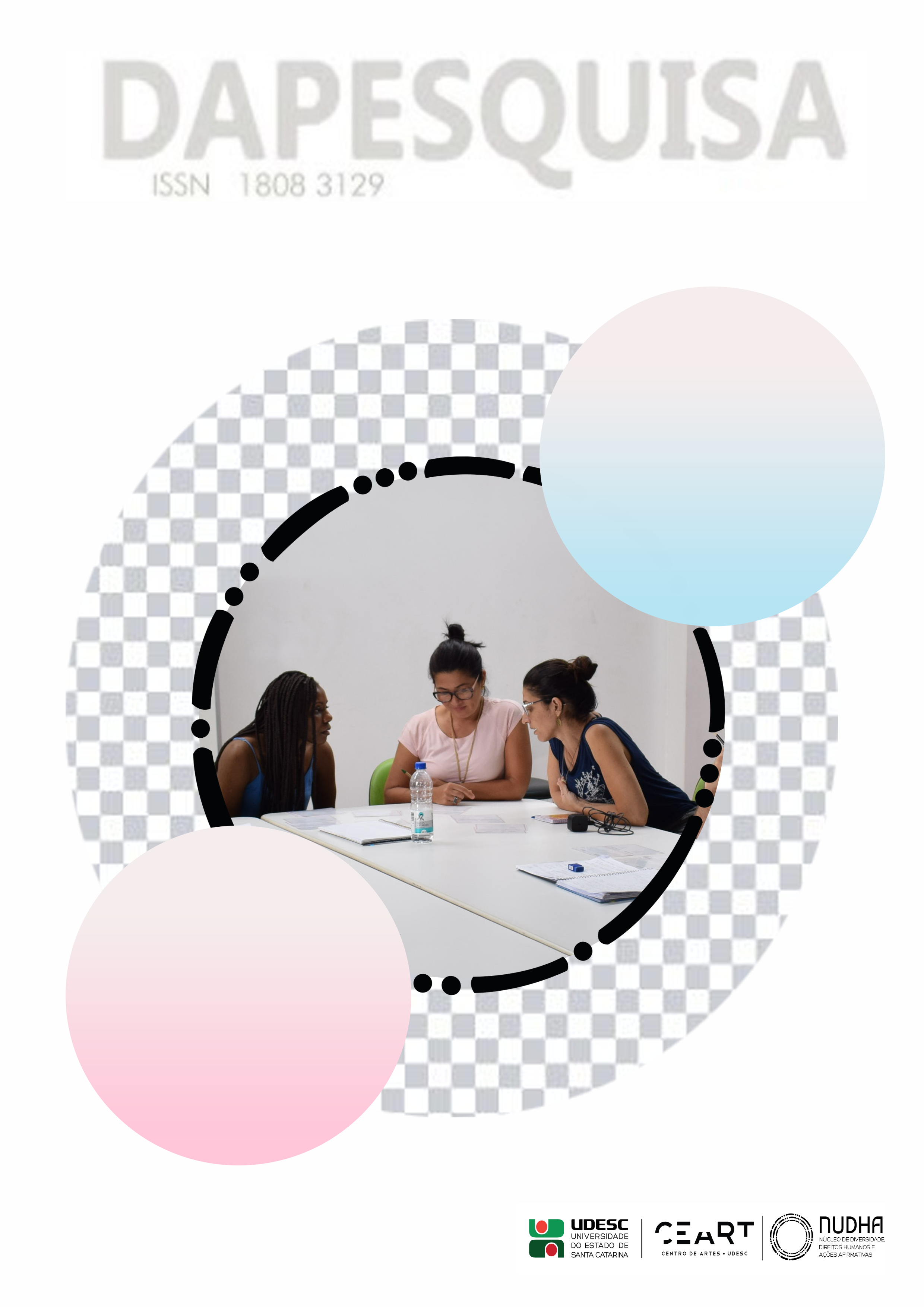Percepções estéticas de mulheres lésbicas acerca de produtos de sex shop
DOI:
https://doi.org/10.5965/1808312915252020e0036Palavras-chave:
Brinquedos sexuais, Lésbicas, Indústria do sexo, Percepção de padrõesResumo
Este artigo busca entender as percepções estéticas de mulheres lésbicas acerca de produtos de sex shop. Assim, esta é uma pesquisa exploratória, básica e descritiva, que se desenvolveu a partir de pesquisa de campo com entrevistas, utilizando um questionário semiestruturado. Esse questionário foi aplicado em grupos focais, de maneira on-line e presencial, sendo a análise desses dados desenvolvida de forma qualitativa. No caso deste estudo, foi possível identificar que as percepções estéticas de mulheres lésbicas acerca de produtos de sex shop seguem desde uma relação de poder com a parceira até uma relação de estranheza com o objeto, gerando possíveis desconfortos. Ainda, tanto na pesquisa on-line quanto na pesquisa presencial, foi possível identificar que há uma preferência por sex toys fálicos e com cores e formas artificiais.
Downloads
Referências
BAXTER, M. Projeto de produto: guia prático para o design de novos produtos. 2. ed. São Paulo: Edgard Blüncher, 1998.
BEST, K. Fundamentos de gestão do design. Porto Alegre: Bookman, 2012.
LÖBACH, B. Design industrial. São Paulo: Edgard Blucher, 2000.
KRIPPENDORFF, K. The semantic turn: A new foundation for design. Boca Raton, FL: CRC Press, 2006. DOI: https://doi.org/10.1201/9780203299951
PRECIADO, B. Manifesto contrassexual: Políticas subversivas de identidade sexual. São Paulo: n-1 edições, 2014.
Publicado
Como Citar
Edição
Seção
Licença
Copyright (c) 2021 Mariana Luísa Schaeffer Brilhante, Célio Teodorico dos Santos

Este trabalho está licenciado sob uma licença Creative Commons Attribution 4.0 International License.
Autores que publicam nesta revista concordam com os seguintes termos:
Autores mantém os direitos autorais e concedem à revista o direito de primeira publicação, com o trabalho simultaneamente licenciado sob a Licença Creative Commons Atribuição 4.0 Internacional, a qual permite que outros distribuam, remixem, adaptem e criem a partir do seu trabalho, mesmo para fins comerciais, desde que lhe atribuam o devido crédito pela criação original, reconhecendo a autoria e publicação inicial nesta revista.
A DAPesquisa, segue as recomendações do movimento de Acesso Aberto, proporciona acesso público a todo seu conteúdo, a partir do princípio de que tornar gratuito o acesso a pesquisas gera um maior intercâmbio global de conhecimento.
Plágio, em todas as suas formas, constitui um comportamento antiético de publicação e é inaceitável. A revista DAPesquisa utiliza o software iThenticate de controle de similaridade.





